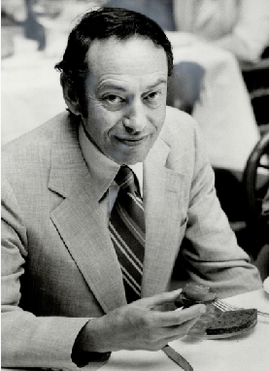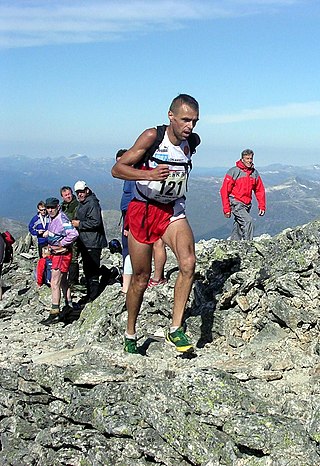Dieting is the practice of eating food in a regulated way to decrease, maintain, or increase body weight, or to prevent and treat diseases such as diabetes and obesity. As weight loss depends on calorie intake, different kinds of calorie-reduced diets, such as those emphasising particular macronutrients, have been shown to be no more effective than one another. As weight regain is common, diet success is best predicted by long-term adherence. Regardless, the outcome of a diet can vary widely depending on the individual.

Sports drinks, also known as electrolyte drinks, are functional beverages whose stated purpose is to help athletes replace water, electrolytes, and energy before, during and especially after training or competition. “The evidence is lacking” pertaining to the efficacy of use of commercial sports drinks for sports and fitness performance.

Carbohydrate loading, commonly referred to as carb-loading, or carbo-loading, is a strategy used by endurance athletes, such as marathoners and triathletes, to maximize the storage of glycogen in the muscles and liver.

Low-carbohydrate diets restrict carbohydrate consumption relative to the average diet. Foods high in carbohydrates are limited, and replaced with foods containing a higher percentage of fat and protein, as well as low carbohydrate foods.

William Banting was a notable English undertaker. Formerly obese, he is also known for being the first to popularise a weight loss diet based on limiting the intake of carbohydrates, especially those of a starchy or sugary nature. He undertook his dietary changes at the suggestion of Soho Square physician William Harvey, who in turn had learned of this type of diet, but in the context of diabetes management, from attending lectures in Paris by Claude Bernard.
The glycemic load (GL) of food is a number that estimates how much the food will raise a person's blood glucose level after it is eaten. One unit of glycemic load approximates the effect of eating one gram of glucose. Glycemic load accounts for how much carbohydrate is in the food and how much each gram of carbohydrate in the food raises blood glucose levels. Glycemic load is based on the glycemic index (GI), and is calculated by multiplying the weight of available carbohydrate in the food (in grams) by the food's glycemic index, and then dividing by 100.

Dean Michael Ornish is an American physician and researcher. He is the president and founder of the nonprofit Preventive Medicine Research Institute in Sausalito, California, and a Clinical Professor of Medicine at the University of California, San Francisco. The author of Dr. Dean Ornish's Program for Reversing Heart Disease,Eat More, Weigh Less and The Spectrum, he is an advocate for using diet and lifestyle changes to treat and prevent heart disease.

Sports nutrition is the study and practice of nutrition and diet with regards to improving anyone's athletic performance. Nutrition is an important part of many sports training regimens, being popular in strength sports and endurance sports. Sports nutrition focuses its studies on the type, as well as the quantity of fluids and food taken by an athlete. In addition, it deals with the consumption of nutrients such as vitamins, minerals, supplements and organic substances that include carbohydrates, proteins and fats.
A diabetic diet is a diet that is used by people with diabetes mellitus or high blood sugar to minimize symptoms and dangerous complications of long-term elevations in blood sugar.

Gary Taubes is an American journalist, writer, and low-carbohydrate / high-fat (LCHF) diet advocate. His central claim is that carbohydrates, especially sugar and high-fructose corn syrup, overstimulate the secretion of insulin, causing the body to store fat in fat cells and the liver, and that it is primarily a high level of dietary carbohydrate consumption that accounts for obesity and other metabolic syndrome conditions. He is the author of Nobel Dreams (1987); Bad Science: The Short Life and Weird Times of Cold Fusion (1993); Good Calories, Bad Calories (2007), titled The Diet Delusion (2008) in the UK and Australia; Why We Get Fat: And What to Do About It (2010); The Case Against Sugar (2016); and The Case for Keto: Rethinking Weight Control and the Science and Practice of Low-Carb/High-Fat Eating (2020). Taubes's work often goes against accepted scientific, governmental, and popular tenets such as that obesity is caused by eating too much and exercising too little and that excessive consumption of fat, especially saturated fat in animal products, leads to cardiovascular disease.

Nathan Pritikin was an American inventor, engineer, nutritionist and longevity researcher. He promoted the Pritikin diet, a high-carbohydrate low-fat plant-based diet combined with regular aerobic exercise to prevent cardiovascular disease. The Pritikin diet emphasizes the consumption of legumes, whole grains, fresh fruit and vegetables and non-fat dairy products with small amounts of lean meat, fowl and fish.

The Western pattern diet is a modern dietary pattern that is generally characterized by high intakes of pre-packaged foods, refined grains, red meat, processed meat, high-sugar drinks, candy and sweets, fried foods, industrially produced animal products, butter and other high-fat dairy products, eggs, potatoes, corn, and low intakes of fruits, vegetables, whole grains, pasture-raised animal products, fish, nuts, and seeds.

The central governor is a proposed process in the brain that regulates exercise in regard to a neurally calculated safe exertion by the body. In particular, physical activity is controlled so that its intensity cannot threaten the body’s homeostasis by causing anoxic damage to the heart muscle. The central governor limits exercise by reducing the neural recruitment of muscle fibers. This reduced recruitment causes the sensation of fatigue. The existence of a central governor was suggested to explain fatigue after prolonged strenuous exercise in long-distance running and other endurance sports, but its ideas could also apply to other causes of exertion-induced fatigue.
The South Beach Diet is a popular fad diet developed by Arthur Agatston and promoted in a best-selling 2003 book. It emphasizes eating food with a low glycemic index, and categorizes carbohydrates and fats as "good" or "bad". Like other fad diets, it may have elements which are generally recognized as sensible, but it promises benefits not backed by supporting evidence or sound science.
Ronald M. Krauss is an American professor of pediatrics, medical researcher and low-carbohydrate diet advocate. He studies genetic, dietary, and hormonal effects on plasma lipoproteins and coronary disease risk.
Fred Pescatore is a Manhattan-based author and internist who specializes in nutrition. He is best known as the author of the bestselling children's health book Feed Your Kids Well (1998) and The Hamptons Diet (2004).
Salim Yusuf is an Indian-born Canadian physician, the Marion W. Burke Chair in Cardiovascular Disease at McMaster University Medical School. He is a cardiologist and epidemiologist. Yusuf has criticized the Dietary Guidelines for Americans and disputes the scientific consensus on dietary sodium and saturated fat intake.
Tea and toast syndrome is a form of malnutrition commonly experienced by elderly people who are unable to prepare meals and tend to themselves. The term is not intrinsic to bread products only. It describes limited dietary patterns which lead to reduced calories resulting in a deficiency of vitamins and other nutrients. This can contribute to a gradual loss of wellness and muscle due to poor protein intake. In elderly individuals with a low GFR, the syndrome may manifest itself as hyponatremia, a low concentration of the electrolyte sodium in the bloodstream. This is attributed to drinking a large amount of water while consuming a diet poor in salt and protein. Hyponatremia can lead to various neurological problems ranging from headaches and a decreased ability to think, to seizures and coma in the most severe cases.

Andreas Eenfeldt is a Swedish doctor specializing in family medicine. He is an advocate for low-carbohydrate high-fat diets and has criticized the saturated fat guidelines. Eenfeldt was born in 1972 and graduated from medical school at Uppsala University. A few years later, he started DietDoctor.com, a website focused on low-carbohydrate diets. He became a public figure in a heated debate over the merits of the diet.

Sir Joel Ivor Mann, generally known as Jim Mann, is a New Zealand nutritionist and endocrinologist. He is professor in human nutrition and medicine at the University of Otago and consultant physician (endocrinology) at Dunedin Hospital. He has researched the role of lipids and carbohydrates in coronary heart disease, diabetes, and obesity, as well as the relationship between obesity and cancer. He was knighted in the 2022 New Year Honours.












